Search Results
Showing results 1 to 20 of 21
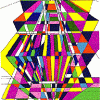
Our Sense of Sight: Color Vision
Source Institutions
In this activity, learners investigate color vision as well as plan and conduct their own experiments.
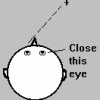
Our Sense of Sight: How We Perceive Movement, Depth and Illusions
Source Institutions
In this activity, learners investigate visual perception as well as plan and conduct their own experiments.
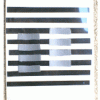
Sliding Gray Step
Source Institutions
How can you make one shade of gray look like two? By putting it against two different color backgrounds! This activity allows learners to perform this sleight of hand very easily.
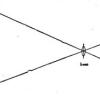
Bring it into Focus
Source Institutions
In this activity (page 2 of PDF), learners play with a lens and a piece of paper to focus an image on the paper. Learners look at different things, and see how the lenses affect the image.
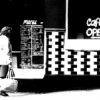
Cafe Wall Illusion
Source Institutions
In this fun and interactive online exhibit, the straight lines of a tile wall appear to curve. The learner moves the rows of tiles and changes the color of the grout to achieve the intriguing effect.
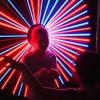
Benham’s Disk
Source Institutions
In this activity (on page 2 of the PDF under GPS: Light and Color Activity), learners will see the illusion of colors produced by a rotating black and white image known as Benham’s Disk.
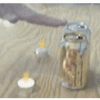
Phantom Phlame
Source Institutions
In this trick, hold your hand over a burning candle without getting burned, by reflecting and transmitting the light of two candles. This activity is best suited as a demonstration.
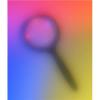
Color Spy
Source Institutions
In this activity (16th on the page), learners play a variation of the "I Spy" game to explore color. Learners work in teams with each team assigned a color.
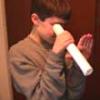
X-Ray Vision?
Source Institutions
In this activity (13th on the page), learners complete a simple illusion trick to see through their own hand.
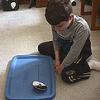
Benham's Disk
Source Institutions
In this activity, learners make a Benham Top to explore visual illusions and optics.
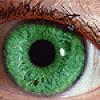
Our Sense of Sight: Eye Anatomy and Function
Source Institutions
In this activity, learners investigate the sense of sight and develop and conduct their own experiments.
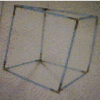
Ambiguous Cube
Source Institutions
In this activity, learners construct a three-dimensional ambiguous cube to explore visual illusions and how our brains interpret or misinterpret information.
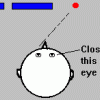
The Blind Spot
Source Institutions
In this activity (1st on the page), learners find their blind spot--the area on the retina without receptors that respond to light.
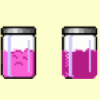
See It to Believe It: Visual Discrimination
Source Institutions
In this activity (12th on the page), learners investigate their ability to discriminate (see) different colors.
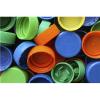
Dark Adaptation
Source Institutions
In this activity (6th on the page), learners investigate how photoreceptors in the eye (rods and cones) "adapt" to low light conditions.
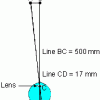
Measuring Your Blind Spot
Source Institutions
In this activity, learners calculate the width (horizontal diameter) of the blind spot on their retina. Learners make a blind spot tester using a piece of notebook paper.
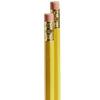
Depth Perception
Source Institutions
In this easy demonstration (3rd on the page), learners explore depth perception by conducting a test with two pencils.
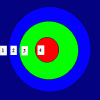
Drop IT!: Depth Perception
Source Institutions
These two activities (4th on the page) demonstrate the importance of two eyes in judging depth.
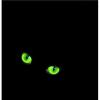
Seeing in the Dark
Source Institutions
In this activity (17th on the page), learners investigate why you cannot see colors in dim light.
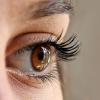
Accommodating Accommodation
Source Institutions
In this demonstration (18th on the page), learners conduct a simple test to explore how the cornea refracts light, which is further bent by the eye lens through a process known as accommodation.
